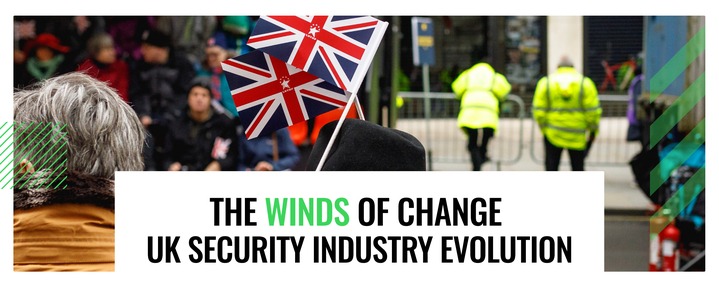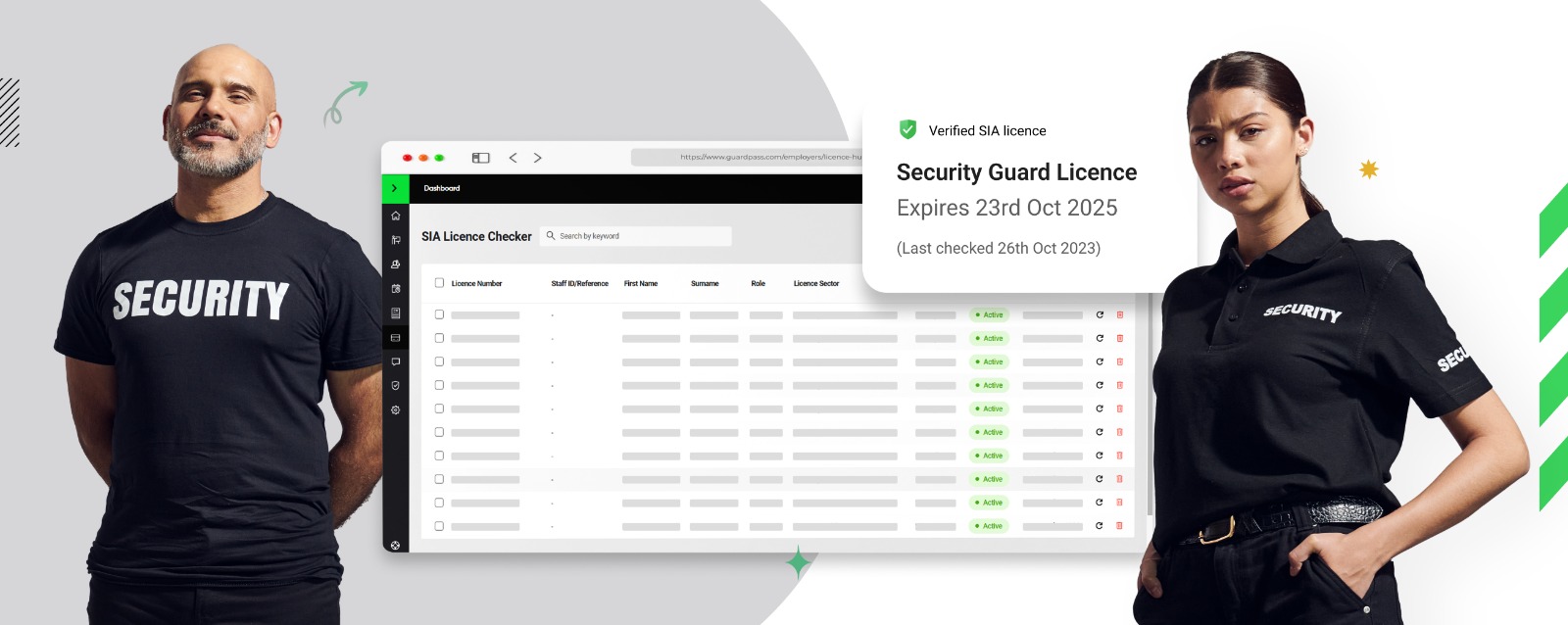People have been talking about security industry improvement and professionalisation for many years, but to the casual observer, very little appears to have changed. In fact, truth be told, and for numerous reasons, standards, pay rates, and levels of appreciation and respect, only ever seem to decline.
There are however, many people, organisations and initiatives, now trying to turn the tide.
Fair, Charge Rate Framework
The security industry is currently awash with reports of malpractice, illegality, exploitation and tax evasion, by an alarming amount of 3rd party labour providers. The two most obvious signs of this are firstly, the horrendous sub-legal minimum wage pay rates, still being blatantly offered on so many WhatsApp groups.
The second should be a red flag for any security company subcontracting guarding work to 3rd party providers, but sadly, it seems to be very carefully ignored in the name of profit. This is the abundance of charge rates so low that the ethical and legal employment of the security personnel supplied, would be impossible.
The Security Industry Authority has no power to enforce pay rates, however, following the lead of the Government’s “Gangmaster and Labour Abuse Authority”, a fair, legal minimum charge rate framework, can most certainly be published.
The highly respected security industry professional, John Lambert from Carlisle Support Services, is leading the charge for implementing this important initiative. John is gathering substantial and important support from across the industry and is currently talking to the Security Industry Authority in an effort to gain crucial official backing.
Publicising a framework of this type performs a couple of hugely valuable things. It will help security companies ensure that they are actually paying rates to their 3rd party security personnel providers, that allow the subcontracted staff, deployed on their client’s assignments, to be correctly employed and fairly paid. It would also help to reduce the likelihood that these personnel are victims of exploitation, human trafficking, or illegality.
A minimum ethical charge rate framework would also be helpful in educating clients that continue to believe that cheapest is best, and are potentially unaware that the low rates that they want to pay, are insufficient to engage legitimate services, and may actually be fuelling organised crime, and encouraging exploitation of front line security workers.
Exposing Training Malpractice
For many years, security companies, and sadly, clients and the general public, have been alarmed at the apparent lack of knowledge and training displayed by a lot of legitimately SIA licensed, security officers.
Last year, as a result of an investigation performed by Get Licensed, we published an article exposing shocking malpractice within the security training industry. Numerous companies were ignoring mandatory SIA licence training requirements, and were in effect, selling training pass certificates, giving completely untrained candidates, exam answers. With these certificates, genuine SIA licences were obtained, and legions of incompetent, and potentially dangerous, security workers entered the industry.
The BBC subsequently produced a “File on 4” radio documentary which found yet more cowboy training companies, willing to “sell” training certificates, with absolutely no regard for the danger to the public untrained workers represent.
The Security Industry Authority is now working hard with Ofqual, the training sector regulator, and slowly but surely, those involved in such malpractice are being found, and brought to justice.
Investigating Illegality
I mentioned earlier the illegal 3rd party security subcontractors, happy to pay below minimum wage, pay cash in hand, and tell workers that they are actually self-employed, to evade paying tax and providing basic legal employment benefits.
The fair charge rate framework will certainly help to stamp out the business opportunities for these criminal enterprises, but there is also an increasing number of professionals, willing to openly highlight and expose this form of illegality.
As a result of a huge amount of social media publicity, The BBC are now working on a documentary taking a look at this issue, the companies that have been facilitating this behaviour, and the massive risk to the public that it represents.
The Security Industry Authority, although woefully underfunded and with a shocking lack of support from the Home Office, are now actively working with whistleblowers and the many professionals that are highlighting and reporting criminality. I’d like to hope that the growing call for action will see the SIA funded to a level that will allow more large scale investigation and enforcement, and will eventually drive organised crime out of the sector.
Mandatory Security Company Licensing
A recommendation of the Manchester Arena Inquiry, and something that the security industry has been pleading for, for many years, the mandatory licensing of all security companies that provide guarding services, would be a massive step towards industry improvement, and indeed, better protection of the public.
Many companies would simply be too dubious or poorly run to obtain a licence. Others, that manage to obtain a licence with the help of some creative accounting and elaborate deception, could be reported when malpractice is noticed and identified. Unable to hide forever, once claims of malpractice are investigated and upheld, the company involved, and their Directors, can be struck off the register of licenced companies, and will no longer be able to operate within the UK security industry.
Recent surveys on social media indicate that this would be the most widely supported security industry improvement initiative.
The SIA is also fully behind this change, but for reasons that we can only speculate about, the Home Office has repeatedly refused to give its authorisation. We live in hope that potentially, a new Government may be more helpful.
Better PR
Due in no small part to the sort of dubious security personnel that have been mentioned earlier, public perception of the industry is at rock bottom.
There have been initiatives in the past, aimed at helping to improve the image of front line security workers and highlight to the public the levels of responsibility, training, and professionalism which are commonplace. Frustratingly, until tangible improvements are achieved, these are doomed to failure.
As malpractice and illegality finally gets stamped out, this is going to be hugely important yet again. There are now big trade bodies championing the men and women at the coal face of our industry, and coordinated action will be vital, when the time is right. The International Professional Security Association, the Guild of Security Industry Professionals, the International Foundation for Protection Officers, and the new trade union for the industry, the Security Industry Federation, are all there to provide front line security professionals with support and assistance. Can organisations like this work together, and can the positive message they will want to broadcast, reach beyond the silo of the security industry? Let’s hope so.
Better Future
I don’t think that too many people would disagree if I said that the UK security guarding industry is in the worst state in its history. The SIA’s mandate is to protect the public, and they, working under the restrictions of the Private Security Industry Act 2001, can do little beyond this.
The light at the end of the tunnel comes in the form of the growing number of security industry professionals who have had enough, and are now actively fighting to turn the tide. Potentially, the industry has a bright future. Exactly how long the obvious hurdles will take to overcome however, is frankly anyone’s guess.
Joining one of the afore-mentioned trade bodies, will most certainly help, so if you haven’t already, choose an organisation that resonates with your thinking, and add your voice to the cries for change.
Current Progress
Amidst the ongoing challenges and slow progression in the security industry, some players in the industry are taking up fair practice initiatives. One such player is GuardPass, a security job board in the UK, which is elevating the industry standards by ensuring that their job board not only features a wide array of opportunities but also listings specifies fair wages and compensation. This approach not only fosters transparency but also champions the rights of security professionals, empowering them to make informed decisions about their employment.
Estimated reading time: 5 minutes



